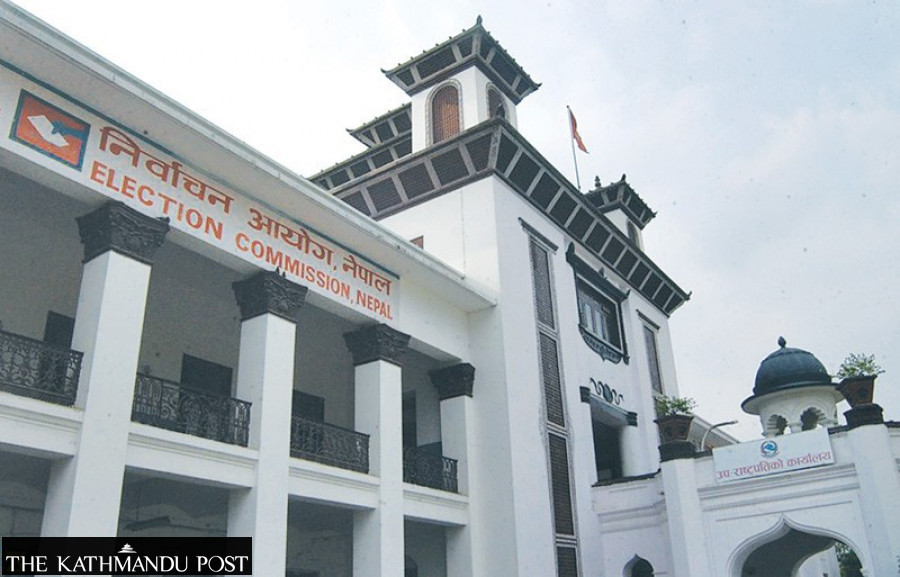National
Groups demand limited access to voter roll on poll body’s website
They submitted a memo to the commission with several demands, including amendment to relevant electoral laws.
Aakriti Ghimire
Twenty-four national and international non-governmental organisations and 1,003 members of the public submitted a memorandum to the Election Commission on Monday demanding controlled access to electoral roll data available on the poll body’s website.
Body and Data, a digital rights organisation which was involved in submitting the memorandum, said they have made three demands—limiting the access of the electoral roll data that is available publicly on the Election Commission’s website only to relevant individuals to ensure their privacy, guaranteeing the privacy and security of the electoral database, and amendment to laws concerning the elections that go against the Constitution and the public’s right to privacy.
Article 28 of the Constitution of Nepal, 2015 guarantees the right to privacy of the citizens. It states that “the privacy of any person, his or her residence, property, document, data, correspondence and matters relating to his or her character shall, except in accordance with the law, be inviolable.”
However, under Section 37 of Nepal’s Electoral Rolls Rules, 2012, the Election Commission should establish its own website for public information and access to the final Electoral Rolls collected, updated and prepared.
Taking note of such rules that go against the constitutionally guaranteed right to privacy, the groups and individuals, in collaboration with Body and Data, submitted the memorandum to Chief Election Commissioner Dinesh Kumar Thapaliya.
“We submitted the memorandum to the chief election commissioner today at the Election Commission itself, in the presence of journalists, and a few civil society members,” said Sapana Sanjeevani, programme coordinator at Body and Data.
Following their interaction with Thapaliya, digital rights activists say they are hopeful that their concerns will be heeded.
“The chief election commissioner has agreed to all our points and acknowledged the flaws in making such data publicly available,” said Sanjeevani. “However, he also emphasised the legal procedures under which he has to operate.”
In mid-April, the Election Commission made the electoral roll data—which included publicly identifiable data of voters throughout the nation—easily accessible.
The list was made available on the Election Commission website and it included the voter’s name, age, gender, address, voting station, spouses’ names, parents’ names and voter ID number.
Such unchecked accessibility of data raised privacy concerns with experts saying it could increase security threats to vulnerable individuals and the potential for misuse of data.
The Post ran a story on the issue in the last week of April.
In light of such grave concerns, digital rights activists feel the commission should act promptly in guaranteeing the right to privacy of the voters.
“The electoral roll should only be accessible to relevant individuals,” said Sanjeevani. “Everyone’s right to privacy has to be guaranteed.”




 13.12°C Kathmandu
13.12°C Kathmandu














